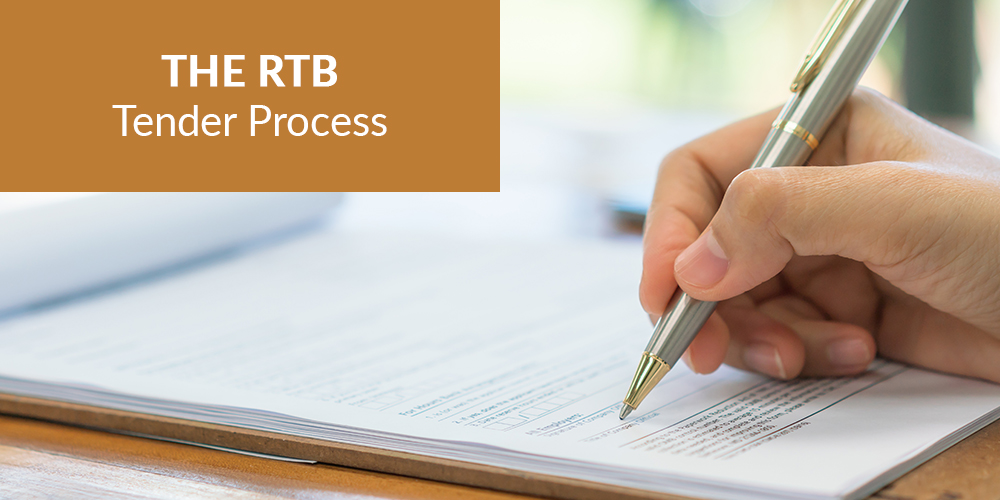The RTB Tender Process
Given how exhaustive preparing a tender bid is the tender writer tends to follow a well organised pattern in preparing a bid to ensure maximum potential for success.
Before starting
Our tender writer in Sydney starts off by carefully and thoroughly perusing the invitation to tender or request for tender and all associated documentation. After reading through the documentation the tender writer will generally then go through the documentation again highlighting any key information such as the elements of the specification and any instructions regarding the requirements for the response.
The tender writer will develop a checklist and action plan for the development of the tender bid based on their detailed examination of the request for tender.
The buyer will specify the method of submission for tender bids, page or word counts, design or formatting expectations, criteria to be answered, any documentation they require with the bid and of course the deadline for submission.
Attention to detail from the outset gives tender writer Melbourne the competitive edge on behalf of their clients.
Writing the tender bid
Tender writer recognise that the criteria supplied in the request for tender are there to help and ensure they use this guide in their submission. They are continually referring back to the criteria and their action plan to ensure they are covering every aspect of the buyers’ requirements.
The tender writer understands that the buyer wants to be informed without doubt that you have understood their requirements and an essential component of the tender bid is informing them how you can meet those requirements and potentially adding your own unique selling point or added value that sets you apart from your competition.
As part of the bid application the tender writer will introduce the team who will manage the contract; their roles, qualifications experience, and skills to provide a comprehensive and reassuring response demonstrating your company’s competence and abilities. The tender writer will provide quantifiable and supported examples of your experience and client testimonials to highlight your suitability for the tender.
Tender writer will not use irrelevant technical jargon within the tender bid, they will use their thorough knowledge of the request for tender documentation to mirror the language used rather than introducing jargon or industry terms that may not be understood by the evaluation team.
During the tender writing process, the tender writer will be constantly reviewing and improving the bid as they write it. They will comprehensively and conclusively respond to all criteria include in the request for tender documentation. The tender writer will generally use the structure within the RFT to form subheadings which allows the evaluation team to see that all questions are answered.
While responding to the criterion tender writer will be looking for openings to highlight your capabilities and demonstrate areas where you have a point of difference from your competitors.
Before submission
Once the tender bid is written tender writer will proofread the final version. They will be thoroughly checking spelling, grammar, punctuation, formatting, word counts and terminology to ensure the bid is perfectly presented and that all criteria are answered, and all documentation requested has been included.
The bid will be submitted using the required submission method prior to the deadline.
After it is all submitted and done
Once the bid is completed and submitted it is a time for reflection and evaluation. On reading your bid is there something that your company can focus on to improve chances in future tender bids. What can you do differently or better? How do you continually improve to increase your capabilities and suitability for future work? After all, building and growing is the ultimate aim and winning tenders is often one of the best paths to ongoing success.

